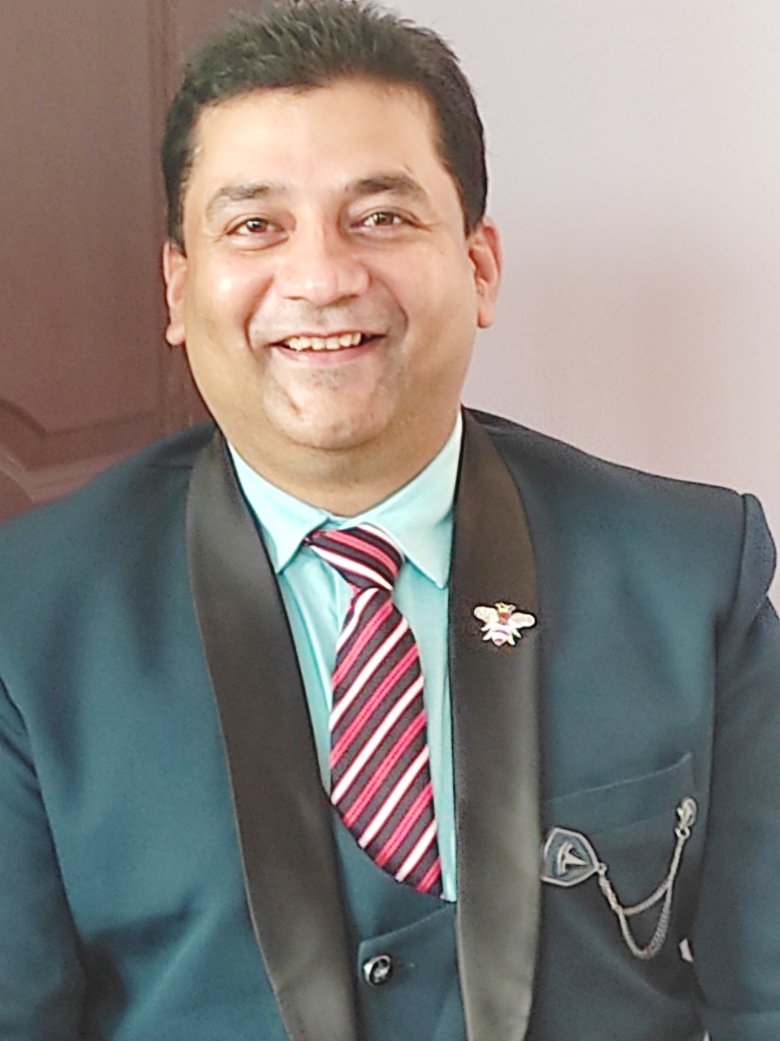
Dr Ramendra Pati Pandey
Dr Ramendra Pati Pandey is a professor in the Department of Biotechnology at SRM University, Delhi-NCR, Sonepat, India.
He was a FAPESP Post-Doctoral Fellow (from September 2015 to January 2019), a very prestigious fellowship in Latin America at the Department of Medicine-InCor/HC-FMUSP, University of Sao Paulo, School of Medicine, Brazil. He was working on new therapies for Chagas disease: using repurposing of drugs acting on the cell invasion and autophagy progression of host cells and potentiation of drug effect using biopolymeric nanoparticulate drug delivery systems against Trypanosoma cruzi.
He was a research associate (from September 2013 to August 2015) at the Translational Health Science and Technology Institute, Faridabad-Gurgaon Expressway, Faridabad Gurgaon, India. He and his group identified the transcription factor Foxo1 as essential for IL-9 induction in T helper cells, and this work has been published in Nature Communications Journal. And there was one patent (Application Number (E-5/1022/2016) on the therapeutic evaluation of Compound 1.
Before joining as a research scholar for his Ph.D., he got a fellowship from the National Science Council of Taiwan to work at Chang Gung University for two years from March 2007 to March 2009, where he, along with the Taiwan group, was able to conclude that the phenotype of tolerized autoreactive CD8+ T cells is context-dependent in a murine model. He did his doctorate (2014) from the University of Delhi and TACF (Tuberculosis Aerosol Challenge Facility) at the International Centre for Genetic Engineering and Biotechnology, New Delhi, India. During his PhD, he developed nanoparticles carrying two secretory proteins of Mycobacterium tuberculosis—CFP-10 and CFP-21—and evaluated their potential to invoke an immune response coupled with oxidative stress when encapsulated in nanoparticles.
He did his M.Sc. in Biotechnology (2006) from the School of Biotechnology, Jawaharlal Nehru University (JNU), New Delhi, India. He was an executive council member of the Indian Immunology Society (2014-2016). He is an editorial board member of more than 10 journals and editor-in-chief of the Indian Journal of Hospital Infection. He has been awarded the Department of Science and Technology, Government of India Young Scientist Award (2010), Senior Research Fellowship from Indian Council of Medical Research (2010), Indian Immunology Society Young Scientist Award (2013), European Federation of Immunological Societies (EFIS) Travel Award (2012), British Society of Immunology Travel Award (2012), Federation of Immunological Societies of Asia Oceania Young Scientist Award (2012 and 2015), American Association of Immunologists Travel Award (2013), International Union of Immunological Societies Travel Award (2013), and The Federation of Clinical Immunology Societies Travel Award (2017). He has published more than 20 research articles and reviews in both international and national journals. He is a member of various international and national scientific societies. He has been selected and received the Early Career Scientist Award from the British Council and the Newton Fund (2019), is a member of the Royal Society of Tropical Medicine and Hygiene, is admitted to membership of the Royal Society of Chemistry, and received the International Scientist Award (2020).
Recently he has been elected as a member of the National Academy of Sciences, India (2021), and selected as an associate member of the esteemed Academy "International Academy of Physical Sciences, Prayagraj (2022); elected as a member of the National Academy of Medical Sciences (2022); elected as a member of the National Academy of Biological Sciences (2023); elected as a member of the National Environmental Science Academy (2023); elected as a member of Sigma Xi, the Scientific Research Honor Society (2023); and elected as a member of the Universal Scientific Education and Research Network (2023). He has been appointed as an ambassador of the Royal Society of Biology, UK, London (2023). Recently, he has been awarded the NESA Scientist of the Year Award 2023 by the National Environmental Science Academy, India, and selected for the Shri. Om Prakash Sharma Award from the Indian Academy of Biomedical Sciences 2023 for his outstanding contributions to the field of biomedical sciences, especially in basic translational research. Polyfeenolix-IIS Best Mid-Career Immunology Teacher Award 2023, in the 50th IMMUNOCON, on 7th October 2023.
Recently, he received the Best Debut Award, an Excellence Award for outstanding academic and scientific contributions in the UPES, held on March 4, 2024. Selected for the most prestigious IRSD Award 2024, which has been awarded during the 13th International Conference on Interdisciplinary Research for Sustainable Development 2024 (IRSD 2024) organized by Green ThinkerZ, India, and the International Institute of Organized Research (I2OR), India, in association with Jamia Hamdard, New Delhi, India; IIT Bombay Spoken Tutorial, India; Centre for Modern Construction, Western Sydney University, Australia; Microsoft Flip; Wakelet; Sustainable Cosmos; Elsevier’s Mendeley; and The Intelligent Indian on 30th May 2024 in Jamia Hamdard, New Delhi, India. Selected for the NESA Distinguished Scientist of the Year Award 2024 based on his teaching and research in microbiology and immunology.